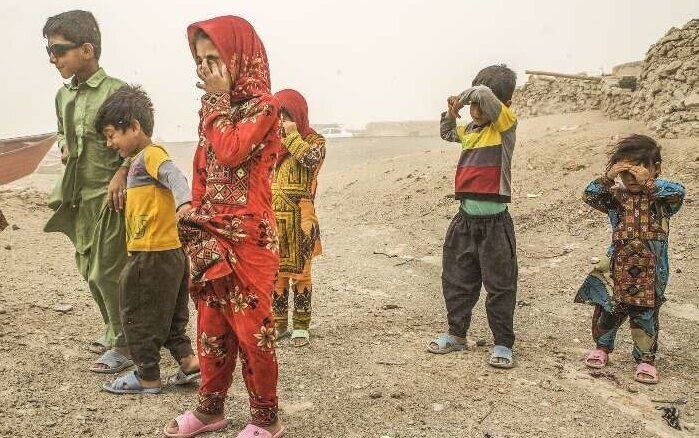Health ministry UNICEF join hands to help children with Severe Acute Malnutrition
Health ministry, UNICEF join hands to help children with Severe Acute Malnutrition
TEHRAN – The Ministry of Health and Medical Education (MoHME) in cooperation with the United Nations Children’s Fund (UNICEF) is providing medical care to children under the age of five who are suffering from Severe Acute Malnutrition (SAM) in Zabol, south-eastern Sistan-Baluchestan province.

Funded by the European Civil Protection and Humanitarian Aid Operations (ECHO), UNICEF has been providing free treatment to these children since September 2024, the UNICEF website announced in a press release on February 17.
At Amir Almomenin Hospital, more than 54 children with SAM have already received critical medical care, ensuring they get the life-saving treatment they need. The initiative not only enhances access to curative services but also focuses on children with disabilities and those most in need, ensuring no child is left behind.
Recognizing the deeper issues of food insecurity, this project will continue throughout 2025. In just three months, a complementary social protection programme will provide households with SAM cases cash cards, helping families purchase nutritious food and improve overall well-being.
A 2021-2022 food and nutrition surveillance study confirmed that moderate and severe wasting remains a major challenge in Sistan-Baluchestan.
While free treatment is available, many malnourished children are not covered under the Universal Public Health Insurance (UPHI), and dietary supplements are not included. To bridge these gaps, UNICEF has strengthened the identification and referral system in Primary Health Care (PHC) settings, ensuring that children receive timely treatment and continuous follow-up care.
By tackling severe malnutrition through both medical treatment and social protection, UNICEF is not only saving lives today but also helping build a more resilient future for the children and families of Zabol. As part of its social protection interventions, UNICEF Iran plans to address food insecurity among eligible households in Zabol.
Recent services in Sistan-Baluchestan
Following the devastating floods that struck Sistan-Baluchestan province, specifically in Chabahar and its vicinity, at the end of February 2024, the United Nations Children’s Fund (UNICEF) has been providing critical assistance, including access to safe water, to the affected communities.
Access to clean and safe water has long been a challenge in the region, even before the floods.
Recognizing the urgent need to address this hazard, UNICEF in collaboration with the Ministry of Health and Medical Education and the Ministry of Energy, initiated a comprehensive program to improve access to safe water, the UNICEF website announced in a press release on December 22, 2024.
This initiative aims to reduce waterborne illnesses, protect vulnerable families, and build resilience in the region’s communities, ensuring sustainable access to clean and safe water.
UNICEF’s response to the water crisis included critical support for water safety testing and purification efforts. “Forty water disinfection devices have been procured and distributed. These devices, which operate on solar energy, provide drinking water for approximately 200,000 people,” explains Siavash Oveisi Arian, a UNICEF volunteer Water, Sanitation and Hygiene (WASH) officer.
“In addition, water quality testing laboratory equipment was distributed across the province,” he added.
The laboratory equipment provided by UNICEF plays a crucial role in ensuring water safety for a large population in Sistan-Baluchestan province. Fatemeh Fadaee, Water and Wastewater Quality Control Manager of Chabahar County, explains, “We assess the water quality in the cities and villages of Chabahar, Dashtiari, Konarak, Zarabad, Ghasreghand, and Nikshar, with a population of one million people, to ensure the safety and quality of the water.”
This enhanced capacity for water quality testing helps protect the health of communities across the province, reducing the risk of waterborne diseases and improving resilience against future public health challenges.
UNICEF’s support to the flood-affected children and their families in Sistan-Baluchestan, including the provision of hygiene kits, prefabricated latrines and showers, laboratory equipment, and water disinfection devices, was made possible through generous financial aid from EU Humanitarian Aid.
MT/MG
source: tehrantimes.com